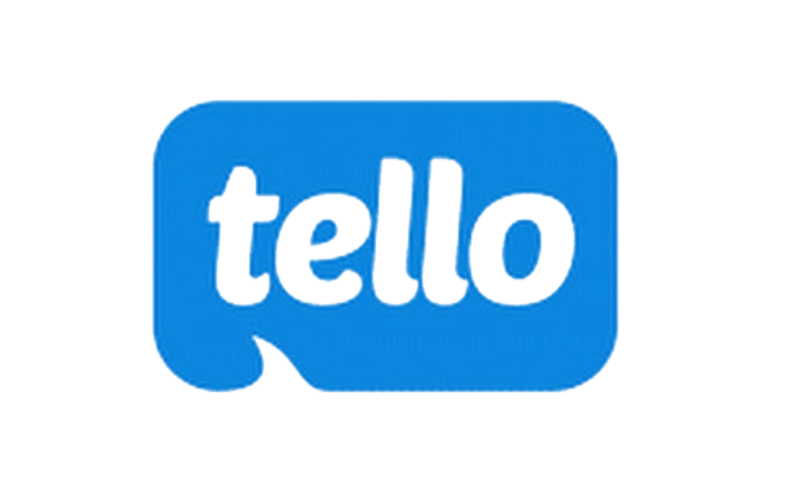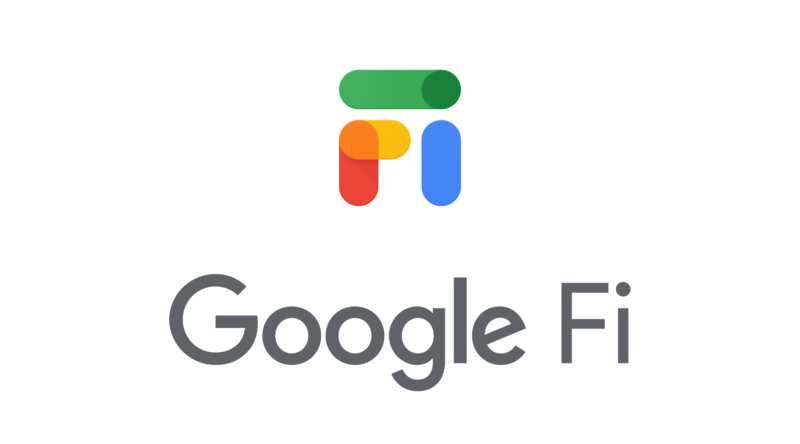5 Best Prepaid Cell Phone Plans For 2023
If you're looking to save money, switching to a prepaid cell phone plan can save you hundreds per year. Prepaid cell phone plans allow you to stay within your budget and avoid the extra fees and price fluctuations associated with big-name monthly cell phone plans.
In addition, prepaid plans come with a variety of talk, text and data options, and the coverage is on the same network as the major carriers. We've linked directly to the plans in the reviews so you can click straight through to get the best deal.
Our Top Picks For Prepaid Cell Phone Plans
- Boost Mobile: Best For Creating Your Own Family Plan
- Mint Mobile Unlimited: Best Value For Unlimited Data
- Tello Economy: Best Low-Cost Plan
- Visible Plus: Best 5G Plan
- Google Fi Simply Unlimited: Best Feature-Rich Plan
Best Prepaid Cell Phone Plans Reviews
The number of prepaid cell phone plans keeps proliferating. While they once used to be solely the province of small carriers, the big-name companies are now offering prepaid options. This means you have many choices, but the sheer number of options can be overwhelming.
In this guide, we've done the sorting out for you. We'll provide the essential details on the best plans, including which one is the best option for your particular circumstances.
All of these plans offer excellent value for a wide variety of needs. Whether you're looking for the cheapest option for basic service or a robust family plan with lots of features, you'll find something that suits you.
At $10 per month for their lowest-priced plan, Boost Mobile is one of the best-value options on our list, although this plan is a bare-bones data option that's only available to new customers. However, if you don't need much data — this plan limits you to 1 GB per month and unlimited talk and text — it's a great deal.
Their premium plan offers unlimited data, talk and text and 30 GB of hotspot data for $60 per month. Conveniently, taxes and fees are included in their prices.
So whether you're looking for the cheapest option or unlimited plans, Boost Mobile has a plan to suit you. You can even mix and match to find a family plan for everyone in your household.
Their unlimited plans include 35 GB of high-speed data, but once you go over that limit, your data speeds will be throttled. You should also know that hotspot data pulls from your high-speed data allotment.
With coverage that spans 99% of the continental U.S., you won't be plagued with dead zones and dropped calls. If you need more features, you can add options such as data packs, phone insurance, international service and call screening.
Mint Mobile's Unlimited plan is available to new customers for $30 per month for three months. You'll only need to commit to a three-month plan, so it's great if you want to try out their service without committing to an entire year. After the initial three-month trial, you can renew for three, six or 12 months, although you'll get the best rates with a 12-month plan.
The Unlimited plan offers unlimited talk, text and data, with your first 35 GB at 4G LTE or 5G speeds, but your data speed will be slowed after that. Mint Mobile runs on T-Mobile's network, so you can expect similar coverage as T-Mobile customers unless the network gets crowded.
If the network is too congested, you'll be deprioritized and may notice sluggish speeds. However, you do have the option of purchasing extra high-speed data if that's a problem. Mint Mobile lets you use up to 5GB of your plan data as a mobile hotspot.
If you want to save the most money, the 12-month plan for $420 is your best bet, compared to paying $480 for the year if you stick with the three-month plan. You can turn it into a family plan by adding two or more lines for $15 each.
Regardless of the plan you choose, you need to pay upfront for the full term. You'll also have to pay for plan renewals upfront after your introductory offer period is over. If you're unhappy with your plan or service, you can cancel within seven days for a full refund.
Tello Mobile's Economy plan is one of the least expensive options available. At only $10 per month, it's ideal for people who need cell service but don't need a ton of extra features. Unlike many other companies, Tello operates on a month-to-month contract, so you don't need to prepay for multiple months to get a good deal.
Tello runs on T-Mobile's network, so you'll get reliable coverage in almost any area. You can use your phone as a hotspot, although it'll draw off your limited data — of which you only have 1 GB. You don't have to pay extra for data over that limit, but your speed will be dramatically slowed down to 2G.
While Tello offers an unlimited plan, other companies have better deals, so this plan isn't for data-heavy users. However, this is a great plan if you have many international contacts since it allows free calls and texts to over 60 countries.
Tello isn't the best option if you need a family plan. Each plan they offer has to be purchased individually, and there are no incentives for bundling or adding lines. It's a bare-bones, affordable, basic service if you mainly need your phone for calls and texts.
Visible Wireless offers an unlimited plan for $30 per month. While that's on par with Mint Mobile's Unlimited plan, you're not locked into paying for multiple months upfront. However, the Visible Plus plan for $45 is where the company stands out.
This is one of the best deals if you're looking for affordable 5G coverage. Verizon is Visible's parent company and Visible runs on Verizon's extensive 5G network, which has some of the best coverage in the industry.
While you may be deprioritized during busy or peak times, it won't happen until you've used your first 50 GB of high-speed data.
Visible's international coverage lets you make calls and texts to over 30 countries from the US. The Visible Plus plan includes data roaming if you travel to Canada and Mexico. You also have the option of adding on a smartwatch for $5 per month, and you can save $15 per month for your first three months if you bring your phone.
Visible may not be the best choice if you want a family plan, since there are no discounts for multiple lines. However, Visible is a great choice if you're looking for an unlimited plan with high-speed data and excellent coverage. If you're on the fence, you can try them for 15 days for free, with no credit card required.
Google Fi's Simply Unlimited plan is $50 per month for one line. It runs best on Android phones, although there is customer support that can help you to get it working on an iPhone. Though it claims to be unlimited, Google will slow your data speeds after 22 GB per month, but you can buy more high-speed data if you need it.
Calls and texts to and from Canada and Mexico are included in the Unlimited plan. You can upgrade to the Flexible plan and get international service for $10, as well as a VPN, so you have built-in privacy protection. Parental controls are also a standard feature.
Google Fi offers good options for family plans, thanks to its many parental control features, although some are only available on Android phones. You can keep an eye on your child's screen time, lock their device and find their phone with GPS.
Although Google's plan isn't the cheapest option, it offers many features and controls. It also offers heavily discounted extra lines. You can get up to six lines for only $120.
Other Services We Considered
Verizon
Verizon offers a 15 GB plan for $45 per month, $35 if you opt-in to autopay. While it offers excellent coverage and speed, you'll have to pay more for 5G.
AT&T
AT&T offers a good value with its 61 GB plan for only $25 per month. However, you'll have to prepay for an entire year to get this deal. You will get hotspot data and the ability to roll over unused data. However, 5G isn't available on this plan. You'll need to upgrade to the Unlimited plan for that.
Cricket
Cricket is an offshoot of AT&T, so their coverage is excellent. They no longer have speed caps on any of their plans, so you can get a 10 GB plan for $40 per month, $35 if you enroll in autopay. You'll get 5G coverage as well, making this plan even more attractive.
Prepaid Cell Phone Plans Guide
If you're wondering about the benefits of a prepaid plan and why you might want to choose one over a traditional plan, this guide will tell you everything you need to know.
How Do Prepaid Phone Plans Work?
When you choose a prepaid plan, you pay for it upfront before you use it. Some plans only require prepayment a month in advance, while others require you to commit and sign a contract for longer periods, up to a year. The plans that require the longest contract terms often offer the best deals.
A prepaid plan works just like traditional plans in most aspects. You may occasionally notice differences in the quality of your service, but most of the time, you'll never be able to tell you're not using a traditional plan with a big-name carrier. What's more, with traditional plans, you'll end up paying a big fee if you cancel ahead of time.
The benefits of prepaid plans include:
Savings
Compared to traditional plans, where you pay after you run up a bill, prepaid plans are usually cheaper. This is particularly true when you consider all of the extras in your phone bill that add up quickly, such as financing a phone and insurance.
Consistent Billing
When you use a prepaid plan, you know exactly what your monthly bill will be. You don't have to worry about your teen accumulating massive charges by streaming movies through your data plan. Prepaid plans let you pay in advance without being blindsided by unexpected data charges.
No Need For A Credit Check
Whether you're young and don't have a credit history or you're trying to recover from a financial setback, you don't need to worry about a credit check. You can easily get a prepaid plan with no established credit history or with bad credit.
Cycles
Prepaid plans are paid at the start of your billing cycle (sometimes multiple cycles) instead of at the end. With a traditional plan, your charges are tallied up at the end of your billing cycle, and you're sent a bill. With a prepaid plan, you pay for your service before you use it. So if your cycle runs from November 1 to December 1, you pay for the plan before November 1.
If you're on a month-to-month plan, you don't need to worry about canceling. You can just switch plans when your current plan ends. However, if you're paying for three, six or 12 months in advance, you're pretty much stuck even if you decide you don't like the service. Because of this, you should be sure you're getting the features and coverage you want before you commit to a long-term prepaid cell phone contract.
Some plans allow you to roll over unused high-speed data to your next month if you stay with them. If you only use 25 GB of your 35 GB high-speed data, you can roll over 10 GB, so you'll have 45 GB available next month.
A Note on Data Usage
Most prepaid cell plans include unlimited talk and texting, so the days of counting the minutes per phone call are over. When you're comparing plans, the main differences are in data usage. Most plans include a certain amount of high-speed data for a flat fee. With unlimited plans, you'll still have data after you use your high-speed data allotment, but it will be slowed down. Some plans will cut off all data after you pass your limits, though this is rare.
Most prepaid plans come from MVNOs (mobile virtual network operators), which means they use the networks but don't own them. Verizon, AT&T and T-Mobile are the major carriers that own their networks. Other companies, including some child companies of the big three, use their carriers to provide cell phone service to their customers.
While this works fine in most cases, when the networks get overloaded, the major carriers prioritize their own customers. If you're with an MVNO, you'll be deprioritized when the network is experiencing heavy traffic. However, the lack of expense associated with maintaining their own network is the primary reason MVNOs can offer lower prices.
What Uses Data On A Cell Phone?
Anything that connects to the internet on your phone can use data. Mobile data is transmitted via a cell phone tower or satellite. These connections allow you to access the internet even when you don't have Wi-Fi access. Wi-fi is different from mobile data because it's transmitted to a local hub that connects and transmits via a router. Your signal is localized and only available close to the router.
Applications that would normally require a Wi-Fi signal are the types of activities that use data on your cell phone.
Emails, Texts And Direct Messages
When you send an email, text or direct message, it uses your phone's mobile data. The amount of data a message uses is directly tied to what you send. Sending a message with a high-resolution photo attached will use a lot more data than if you send a short text message.
Surfing The Web
Browsing the internet uses a good bit of data. Dynamic web pages must constantly refresh to keep providing you with updated information. Streaming video also uses a lot of mobile data. However, a lot of data is also used by ads and hidden trackers. Asking apps not to track you and blocking ads can drastically reduce your mobile data usage.
Apps
All apps use data when they connect to the internet. When an app asks to keep running in the background, it can consume a tremendous amount of data even if you're not actively using it. You can reduce this by changing your settings to only allow the app to track you when you're using it.
Any app or function that needs an internet connection to work will use your mobile data if you're not near Wi-Fi. The more data-intense an app is, the more data it will use. Streaming movies, for instance, can use up to 1 GB of data per hour. Considering that most prepaid plans only offer 20 to 50 GB of high-speed data, even on their unlimited plan, one movie can take a big bite out of your monthly data allotment.
Many streaming services allow you to download episodes so you can watch them on the go without using your data. You can check how much data your apps use in your phone's settings. If you want to watch your data usage, change the settings on data-heavy apps to only allow them to work on Wi-Fi.
Most phones also allow you to restrict apps from running in the background and eating up your data. You may want to delete apps if you can't stop them from running in the background. If you really want to avoid using data, you can turn off mobile data. However, it is probably better to control individual apps since turning off all mobile data will limit your ability to receive texts. You'll only get them when you connect to Wi-Fi or turn mobile data back on.
What Is The Best Prepaid Phone Plan?
Because the best prepaid phone plan will depend on your circumstances and why you're using your phone, there are some factors you should consider before you buy a plan.
Pricing
Price is often the most appealing part of buying a prepaid plan. While price is obviously an important consideration, it's not always the most important. If you're saving $20 per month going with a cheaper plan, but your data speed is throttled so much that it takes forever to do anything, it's probably not worth the savings. However, if you just need a cell phone and you do most of your streaming and surfing over Wi-Fi, data caps and speeds may not be an issue for you.
Data Allotment
If you use a lot of data, you should compare plans to find the one that gives you the most high-speed data at the best price. Some prepaid plans offer unlimited high-speed data, while others offer a certain amount of high-speed data and then slow down your speeds after using up your allotment. In some rare cases, your data is completely cut off after you reach your limit.
Network Coverage
Since most prepaid carriers are MVNOs, check which network they use to provide coverage. Some MVNOs use their parent carrier's network for coverage. Others are independent and use a combination of networks to provide more comprehensive coverage. This can result in coverage that's more extensive than that of the major carriers, particularly in remote areas.
You should also look into how your data will be prioritized. No matter how good your coverage and data speeds are, you may find your service sluggish and unreliable if you're deprioritized. If you're worried this may be an issue for you, you may want to go with a plan that offers a free trial before you commit.
Data Speed
While you may be tempted to go with the cheapest "unlimited" plan, it's worth looking at data speeds before you commit. Most plans, even those that claim to offer unlimited data, will only give you a limited amount of high-speed data. After you reach the limit, you'll still have data, but it will be markedly slower than your high-speed data. This can be frustrating if you're looking for an unlimited data plan because you use a lot of data.
Flexibility
You can find many different contract options for prepaid cell phone plans. Although month-to-month contracts offer the most flexibility for canceling a plan you're not happy with, it may be worth signing a longer contract if you find one you like. Most companies that offer longer contracts often give a discount for choosing them.
Add-On Features
Some prepaid plans only give you one or two options, while others offer an array of extra features and add-on services. There's a place for both types of plans. While those who only need to consider their own service may prefer a one-size-fits-all unlimited option, people who need to provide multiple cell phone lines or want to keep track of their children's cell phone use will probably want a plan they can customize to their family.
Phone Options
Some providers allow you to purchase a phone or bring your own phone directly. If you already have a phone, the cheapest option will be to bring your own phone, but that's not always possible. The option to purchase a phone from your prepaid provider can be convenient.
Prepaid Cell Phone Plans FAQ
How We Chose The Best Prepaid Cell Phone Plans Of 2023
We know people have different needs when choosing a cell phone plan, so we picked out a range of plans that provide great value regardless of what you need. When we were deciding which cell phone plans made our list, we looked at several factors, including:
Cost
Price is obviously one of the biggest considerations when choosing a prepaid plan. Getting a good value and saving money are some of the most critical motivations for people considering the switch to a prepaid cell plan. Considering that some traditional plans can easily cost well over $100 per month, switching to a budget plan can save you a significant amount in a year. We looked for plans that had a low price while still providing quality service.
Add-On Features
We chose plans that offered extra features you might need without driving up the price too much. When we picked plans with limited features, we made sure the price tradeoff was worth it. We also chose plans that were a little pricier but offered more features for those who need them. Parents, in particular, are likely to prefer plans that allow parental controls and tracking and data-limiting features.
Flexibility
There's no one-size-fits-all plan that's perfect for everyone. We aimed to provide a range of plans that would suit everyone, from young adults getting their first plan to families who need multiple lines. Google Fi's plan is perfect for busy families trying to stay connected, while Tello's is ideal for a single person who only needs the basics.
Contract Terms
Although we favored plans that didn't require contracts beyond the upcoming month, we did consider some that offered contracts if the value was significant enough. Not everyone will want to commit to a contract for three, six or 12 months, but some people would prefer to pay the up-front expense once and not worry about it for several months to a year afterward.
Value
Ultimately, we looked for plans with a good mix of features, connectivity and low price to provide the best value for customers. Since everyone has a different idea of which features are most important, we chose a broad cross-section of plans to give you plenty of options.





